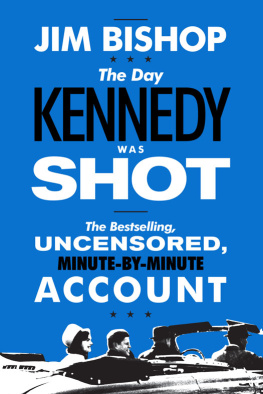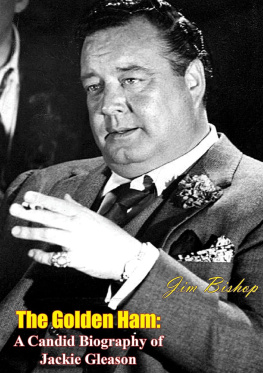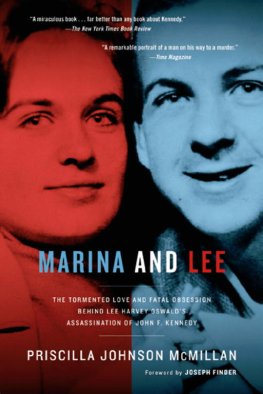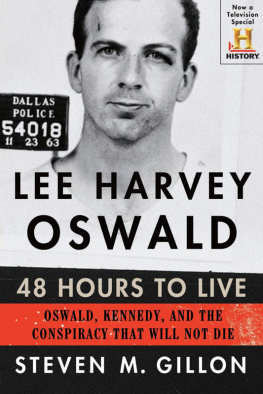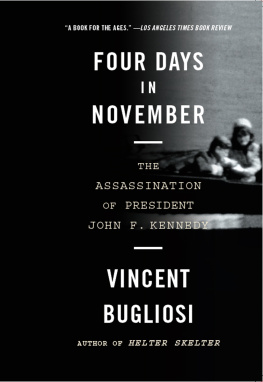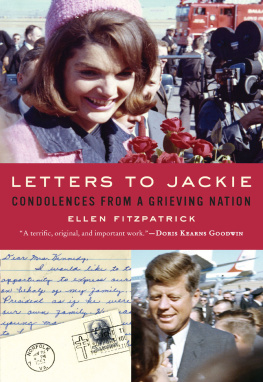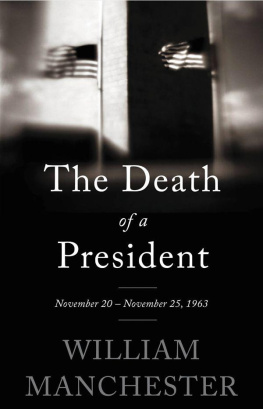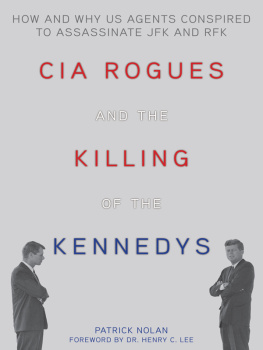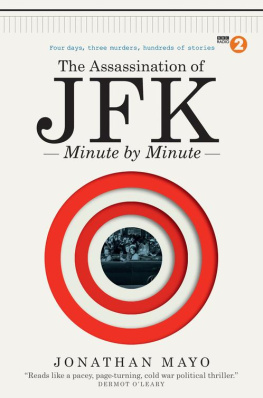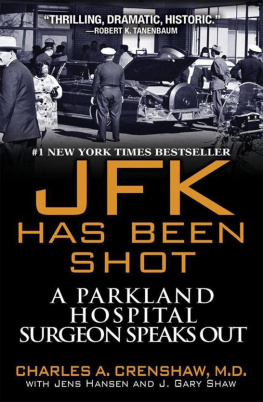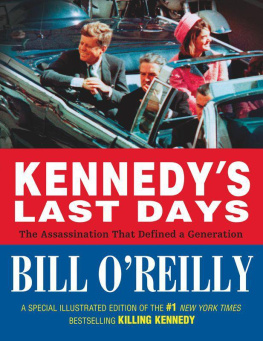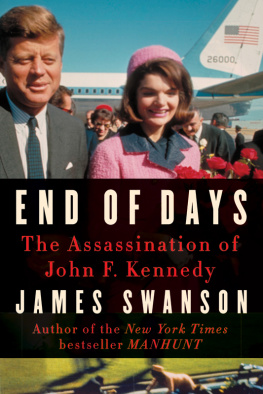Jim Bishop - The Day Kennedy Was Shot
Here you can read online Jim Bishop - The Day Kennedy Was Shot full text of the book (entire story) in english for free. Download pdf and epub, get meaning, cover and reviews about this ebook. year: 2013, publisher: Harper Perennial, genre: History. Description of the work, (preface) as well as reviews are available. Best literature library LitArk.com created for fans of good reading and offers a wide selection of genres:
Romance novel
Science fiction
Adventure
Detective
Science
History
Home and family
Prose
Art
Politics
Computer
Non-fiction
Religion
Business
Children
Humor
Choose a favorite category and find really read worthwhile books. Enjoy immersion in the world of imagination, feel the emotions of the characters or learn something new for yourself, make an fascinating discovery.
- Book:The Day Kennedy Was Shot
- Author:
- Publisher:Harper Perennial
- Genre:
- Year:2013
- Rating:4 / 5
- Favourites:Add to favourites
- Your mark:
- 80
- 1
- 2
- 3
- 4
- 5
The Day Kennedy Was Shot: summary, description and annotation
We offer to read an annotation, description, summary or preface (depends on what the author of the book "The Day Kennedy Was Shot" wrote himself). If you haven't found the necessary information about the book — write in the comments, we will try to find it.
The Day Kennedy Was Shot — read online for free the complete book (whole text) full work
Below is the text of the book, divided by pages. System saving the place of the last page read, allows you to conveniently read the book "The Day Kennedy Was Shot" online for free, without having to search again every time where you left off. Put a bookmark, and you can go to the page where you finished reading at any time.
Font size:
Interval:
Bookmark:
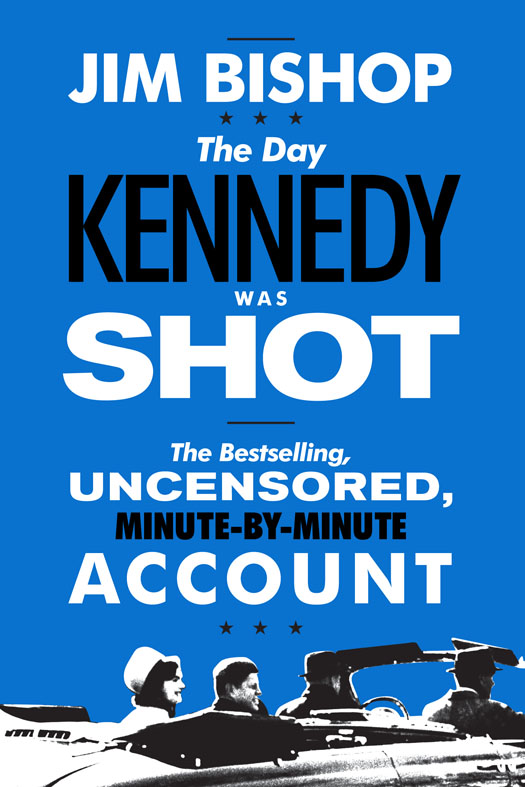
This book is dedicated to Kelly Bishop, my wife, my assistant, my life
There is a lingering melancholy, mixed with suspicion, regarding the assassination of John Fitzgerald Kennedy in Dallas, Texas, on November 22, 1963, and it is difficult to tell which is the harder to sustain. The shock waves which radiated from Dealey Plaza on that warm noon day seemed, like some cataclysmic sound, to pass around the world and back again many times, hardly diminishing in intensity as it bruised consciences. He had been a fair prince indeed, bringing youth and sophistication and an air of confidence to the throne. He had had his political triumphs and gaffes, but in either case he was facing forward when they occurred.
His friends, his enemies, his aparthtiques had sharp memories for the thick brown hair, the square gleaming teeth, the sailors eyes, the frame of the dandy. They recalled his wife, too, as First Ladies are seldom remembered. They knew the dark slab of hair, the piquant, brilliantly lighted face, the modes, the moods, the veneer of the well-bred Georgetown girl. She had the clasped hands, white-knuckled ecstacy of a little girl at her first prom, and an appreciation of privacy. The world, it seemed, could conjure visions of little Caroline, fair-haired and sweet, and John-John, with a babyish face which had yet to make up its mind, an innocent in a white suit who could bow gravely from the waist without falling.
The nation and the world had no trouble remembering. The problem was forgetting. Waves of masochistic guilt swept America. Many people felt that, in some vague manner, we had failed Kennedy. Everything about the funeral, including the stiff-legged march to the Pro-Cathedral with the muffled tattoo of drums, was calculated to reduce the nation to tears. President Johnson appointed a committee of distinguished men to investigate the assassination and the subsequent slaughter of Lee Harvey Oswald. The simple became complex; the obvious, obtuse. The death of Mr. Kennedy became the subject of lengthy newspaper articles, magazine series, books, pamphlets, tracts, theses. The more the people read, the more certain they became that they had not heard the facts.
Some of the writers were irresponsible and sensational. These drew the most attention. A single hair could be split in several ways, and they split bullets, assassins, affadavits, and innuendo. There areaccording to my count16,500,000 words of research material on John F. Kennedy and the amount is growing. The tan smiling figure of the President began to take on the aura of a mysterious martyr.
He became a bigger man than he was. A library was proposed. Donations were solicited. The father of the President donated a million dollars. A brother-in-law, Stephen Smith, was appointed chairman of the drive for ten million dollars. A train was sent on a tour of cities with Kennedy memorabilia. The people gave freely of their hearts, their tears, but not their money.
On a warm day in 1959, John F. Kennedy had permitted me to remain at his side so that I might write a newspaper story called The Day Kennedy Was Nominated. In public he was self-assured, an eager fighter. In private, as we parted, he said: I have to make it by the second ballot. All of our delegates are pledged for two. If I dont make it by then, the votes will scatter. Im going to watch it on TV. I shook his hand and said he could make it on the first. I hope so, he said, and walked up an alley beside a small Beverly Hills apartment house. He hopped a fence to visit his father, who was in the home of actress Marion Davies.
The last time I saw President Kennedy was at the White House. It was a month before the assassination. I was present to research an article for Good Housekeeping magazine to be called A Day in the Life of President Kennedy. He was cordial and helpful, and he seemed anxious for me to write a book rather than a magazine piece. At one point, feeling that he had not persuaded me, the President addressed Mrs. Bishop: Kelly, he said, dont you think he has enough material for a book? I had, barely.
Our last chat was held in the big Oval Office and he selected the topic. It was assassination. He was in his Kittyhawk rocker, the black shoes gleaming as he prodded himself back and forth, and he said he had enjoyed a book of mine called The Day Lincoln Was Shot.
My feelings about assassination are identical with Mr. Lincolns, he said. Anyone who wants to exchange his life for mine can take it. The words were uttered with bland good humor. They just cant protect that much.
He expatiated on the subject without belaboring it. He told how he avoided church crowds by having the Secret Service drive him first to St. Matthew Pro-Cathedral. If the street was jammed with people, he would ask to be taken to St. Patricks, in downtown Washington. If that appeared to be too busy, he would go out to Georgetown, to the little church he and Mrs. Kennedy visited when they lived there.
Sometimes, on Sunday, he would leave his pew as the priest left the altar, and genuflect in the aisle. Behind him, two Secret Service mennot necessarily Roman Catholicswould do the same. So would two in the pew in front. The five would turn to face the rear of the church, and, as they walked toward the church doors, the President would start to crouch. As his knees flexed a little more with each step, he would grow smaller and smaller. Then he would whisper to the two in front: If there is anybody in that choir loft trying to get me, theyre going to have to get you first.
While I was at the White House, a blanket order had been issued to all hands to grant interviews and to take me wherever I desired to go. There were many people to see. The President asked, at least three times: How did you make out with Jackie? She had been gracious and lovely, as I knew she would be. Still the repetitious question made me wonder why the President asked it. Newspaper reporters in the West Wing had told me that Jacqueline Kennedy would not see me, and would not permit me to see the private quarters of the family.
On the contrary, she did. If she was not friendly, she was a consummate actress. Many of her observations about her husband and children were directed to Mrs. Bishop. Her father-in-law was convalescing from a cerebral hemorrhage and she said she was mad about him. She had proposed several times to her husband that they bring Joseph P. Kennedy to the White House to liveI could put him in the Lincoln Roombut John F. Kennedy said no. Whatever reason she had for inviting him, her husbands contrary wish was more adamant. At no time did she indicate that the invitation might include her mother-in-law, Rose.
On another occasion, she said: Next month Im going to Texas with my husband. It will be my first campaign trip. She did not appreciate or understand politics. She knew that her attractive presence would help her husband secure votes, and Mrs. Kennedy seemed to have feelings of guilt about not accompanying him. She said she was not happy in the White House and, even though she remodeled the interior of the mansion, she was fond of pointing out that, of more than one hundred thirty rooms, only eight were the private apartments of the President.
She was a woman who was pleased and offended by small things. The President who often assured worried political friends, I can control Bobby was never heard to say it of his wife. To some observers, they seemed to live as separate entities. Mr. Kennedy applied himself to the hard world of politics; Mrs. Kennedy enjoyed yachting off the Greek Islands, or booking a ballet for the East Room. The connubial X intersected after dinner, when they sat alone in the living room on the second floor. He smoked a cigar, sipped a beer, and studied his night work. She puffed a cigarette, put long playing records on the turntable, and examined her correspondence.
Font size:
Interval:
Bookmark:
Similar books «The Day Kennedy Was Shot»
Look at similar books to The Day Kennedy Was Shot. We have selected literature similar in name and meaning in the hope of providing readers with more options to find new, interesting, not yet read works.
Discussion, reviews of the book The Day Kennedy Was Shot and just readers' own opinions. Leave your comments, write what you think about the work, its meaning or the main characters. Specify what exactly you liked and what you didn't like, and why you think so.

